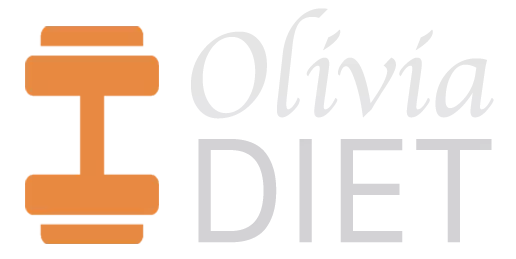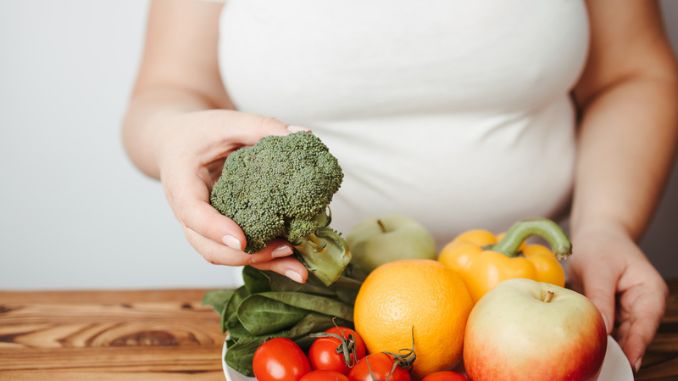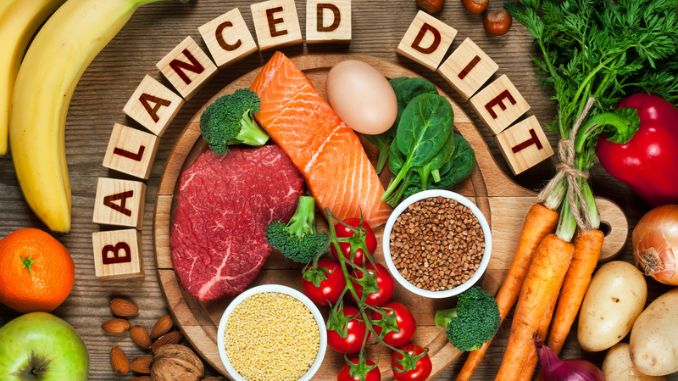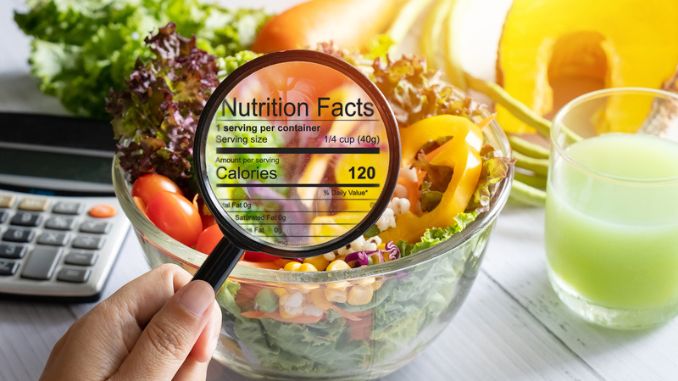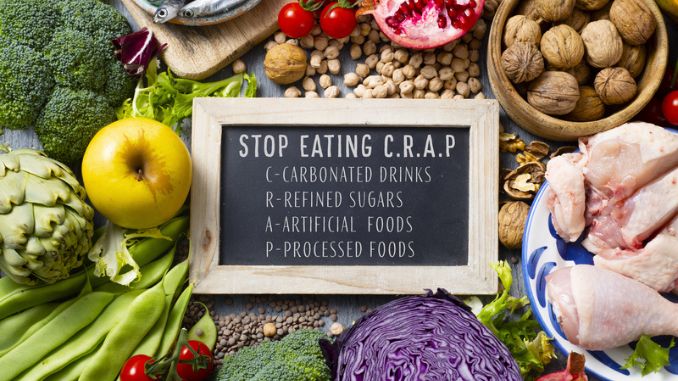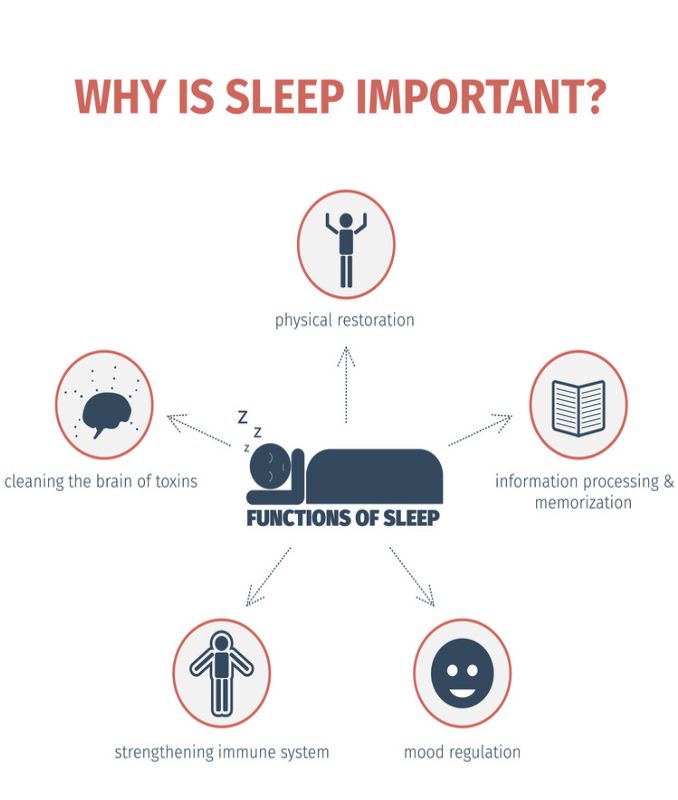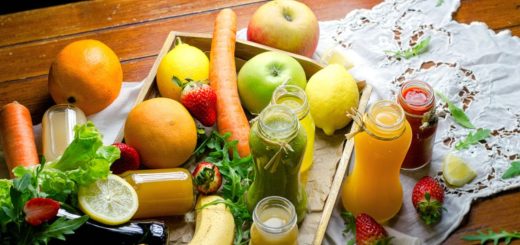Burn Fat Without Exercise: Simple Lifestyle Changes
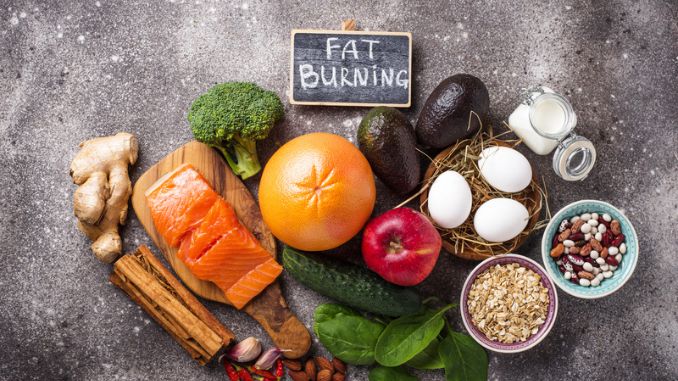
Last updated on April 4th, 2025 at 07:50 pm
Fat burn without exercise is possible, but it requires a holistic approach to your lifestyle and diet. While exercise is undoubtedly beneficial, it is not the only means to lose weight; you'll need to modify your diet. Many people can burn fat without exercise or physical activity. Now, let's dive in and learn how to shed those unwanted pounds without hitting the gym! Explore how you can burn fat without exercise, from dietary changes to lifestyle modifications, and how they can improve your overall health and welfare.
Nutrition
Importance
Nutrition plays a crucial role in losing weight. While physical activity can be an effective way to reduce belly fat without exercise and lose weight fast, it is possible to shed excess fat through a weight-loss diet that emphasizes whole, nutrient-dense foods while avoiding unhealthy foods that supply the accumulation of belly fat.
Healthy foods contain a high amount of nutrients, while processed foods usually contain high fat, sugar, and salt levels. It is important to consume healthy foods to maintain good health.
Weight loss is not about denying yourself or cutting out entire food groups but minding sustainable changes to your diet and lifestyle.
Healthy eating habits to lose belly fat
Therefore, healthy eating habits are critical for sustainable gut health. Focus on foods high in fiber, protein, and healthy fats while limiting processed foods, sugar, and unhealthy fats.
Moreover, Incorporating protein-rich foods into your diet can be an effective strategy for a flat belly without exercise, as increasing your protein intake can help you feel fuller and prevent overeating.
Here are some tips to help you develop healthy food eating habits:
- Eat more protein.
- Choose healthy fats, such as olive oil, nuts, seeds, avocado, and fatty fish are essential for maintaining optimal health and can help with weight loss.
- Refraining from skipping meals can lead to overeating and may slow your metabolism, making it harder to lose weight.
Examples of healthy, nutritious meals for weight loss:
- Grilled chicken with roasted vegetables and quinoa
- Salmon with steamed broccoli and brown rice
- Turkey chili with beans and mixed vegetables
- Stir-fried tofu with mixed vegetables and black rice
- Greek yogurt with berries and nuts
Hacks for healthy eating:
- Keep healthy snacks handy, such as nuts, fruits, and vegetables, to avoid reaching for unhealthy options when hunger strikes.
- Avoid eating while distracted, such as watching TV. Eating while watching TV can lead to mindless overeating.
- Try new healthy recipes to keep your meals interesting and exciting.
- Do not store unhealthy foods.
- Avoid fad diets
- Increase dietary fiber-rich foods
- Read nutrition reviews
Furthermore, developing healthy eating habits is crucial to burn fat without exercise, even just a few pounds. Otherwise, it can lead to a binge-eating disorder.
Balanced diet
Maintaining a healthy food diet is crucial for a healthy body and mind. Listed below are a few nutritious eating practices that can aid in shedding excess body fat.
1. Limit your sugar intake.
These can add extra calories to your diet without providing any nutritional value.
Example: Avoid sugary beverages like soda and fruit juice, and limit your consumption of sweets like candy, cake, and cookies.
Hack: Choose whole fruits instead of fruit juice, and satisfy your sweet tooth with natural sweeteners like honey or maple syrup.
2. Calorie deficit.
A calorie deficit with a balanced meal involves consuming fewer calories than your body needs while maintaining a diet rich in all essential nutrients.
Hack: Incorporate more low-calorie, high-fiber foods into your meals to help you feel full and satisfied while staying within your calorie budget.
Example: You can start by choosing lower-calorie options for some of your favorite foods. Add more fruits and vegetables to increase their volume and decrease calorie density or incorporate lean proteins like chicken, fish, and tofu to help you feel fuller for longer.
Be mindful of your snacking habits.
Avoiding processed foods
Restrict processed foods. They are often high in calories, unhealthy fats, and sugar, making them easy to overeat.
Tips:
- Read the label
- Cook at home
- Choose whole foods
- Shop the perimeter, where you’ll find fresh produce, meat, dairy, and other whole foods.
- Be mindful of your drinks.
By focusing on whole, nutrient-dense foods, cooking at home, and being mindful of your food choices, you can create healthy eating habits to help you achieve your ideal body.
Drinking water
Keep hydrated, drinking plenty of water can help you feel full and reduce your calorie intake. Water also helps flush toxins out of your body and keeps you energized throughout the day.
Aim to drink at least eight glasses of water daily, and more if you exercise or in a hot environment.
Hack: Infuse your water with fresh fruit or herbs for a delicious and healthy way to stay hydrated.
Tip: Consume water-rich foods, such as cucumber, watermelon, and leafy greens. Carry a reusable water bottle and sip water throughout the day rather than chugging it all at once.
Important: Reducing water weight through increased hydration can provide health benefits such as improved blood pressure and better appetite control.
Portion control
Controlling portion sizes is important to manage weight. Use smaller plates or measure food portions.
Example: Use measuring cups or a food scale to portion your food.
Hack: Practice mindful eating and chewing slowly. This can help you feel more satisfied and prevent overeating.
Tip: Consider tracking your meals and snacks in a food diary or app to help you stay obligated and determine areas where you can improve portion sizes.
Meal planning and preparation tips
With the right tips and tricks, meal planning and preparation can become a manageable and enjoyable part of a healthy lifestyle, even for those with busy schedules or limited cooking experience.
1. Meal prepping to manage weight gain
Meal prepping is preparing and planning meals, typically for the week ahead. Here are some meal-prepping tips to lose weight:
- Plan your meals: This will help you avoid impulse eating and make healthier choices.
- Focus on high-protein, low-calorie foods: These foods will help you feel full and satisfied.
- Incorporate fruits and vegetables: Add plenty of colorful fruits and vegetables to your meals, low in calories and fiber-rich, which will help you feel full for longer periods.
Examples of healthy meal prepping meals:
- Roasted chicken breast with grilled sweet potatoes and broccoli
- Quinoa salad with roasted vegetables and avocado
- Turkey chili with mixed vegetables and brown rice
- Grilled fish with steamed asparagus and wild rice
- Lentil soup with mixed vegetables and whole-grain bread
Tips:
- Schedule a specific day and time each week to do your meal prep
- Use a slow cooker or instant pot for easy, hands-off cooking
- Buy pre-cut vegetables to save time
- Freeze meals for later use
- Keep healthy snacks like fruits, nuts, and yogurt on hand when you need a quick snack.
2. Cooking at home
Cooking at home is an effective strategy for meal planning that can help control your calorie intake and other unhealthy food components.
Tips to get started:
- Cook in bulk: Make large batches of healthy meals and store them in portion-sized containers in the fridge or freezer for easy access.
- Cook with healthy methods: Choose cooking methods that do not add more calories or unhealthy fats, such as baking, grilling, or steaming.
- Choose fresh fruits and veggies with hummus for snacks.
Hack: Invest in quality kitchen tools, such as a sharp knife, non-stick cookware, and a slow cooker or instant pot. These tools can make meal prep easier and more enjoyable.
3. Grocery shopping tips
Grocery shopping is a key component of successful meal planning and preparation. Following simple tips, you can make the most of your grocery shopping trips and save time, money, and effort.
- Create a shopping list based on the ingredients needed for those meals to help you avoid impulse buys.
- Stick to your list and avoid unnecessary purchases.
- Shop for produce in season, as it is usually cheaper and fresher. Feel free to buy frozen fruits and vegetables, too, as they can be just as nutritious as fresh and a good option when certain produce is out of season.
- Consider buying bulk items such as rice, pasta, and beans, which are versatile and can be used in various dishes.
- Take the time to prep your ingredients for the week ahead. Wash and chop vegetables, cook and portion out meats, and prepare sauces or marinades. This will save you time during the week and make meal preparation much easier.
By planning, sticking to a list, shopping smart, and prepping ahead, you can make grocery shopping a breeze and set yourself up for success with your meal planning and preparation.
Lifestyle Changes
Importance
Making lifestyle changes is essential because it creates a sustainable approach to weight management.
Lifestyle changes can also help create a calorie deficit and boost metabolism.
Examples:
- swapping sugary drinks for water
- walking instead of driving short distances
- Choosing whole foods over processed foods.
- Taking the stairs instead of the elevator
- Set limits on your screen time and try to incorporate other activities, such as reading or outdoor exercise, into your daily routine.
Adequate sleep
Adequate sleep and natural appetite suppressants may aid in burning fat without exercise, as poor sleep can negatively affect metabolism and increase insulin resistance, leading to weight gain.
If we sleep poorly, these hormones become imbalanced, leading to increased hunger, cravings for sugary drinks and food, fatty foods, and decreased metabolism. This can make it much harder to burn fat or weight without exercise.
Importance of sleep in Weight loss
During deep sleep, our bodies release growth hormones essential for building and repairing muscle tissue. This increases our metabolic rate to burn more fats or calories without exercise throughout the day.
Getting enough sleep also helps to regulate levels of the hormones ghrelin and leptin, which control hunger and satiety.
Of course, sleep alone cannot replace the benefits of exercise when it comes to losing abdominal fat and maintaining a healthy weight. However, getting enough sleep is crucial in supporting a healthy lifestyle and achieving body weight goals.
Sleep is critical in weight management, particularly when losing fat without exercising. By supporting metabolic processes, regulating appetite and satiety, and improving insulin sensitivity, getting enough sleep can help to reduce fat storage and promote weight loss.
Tips for better sleep
Getting quality sleep can be challenging, especially without exercise.
A study has shown that people who get enough sleep, typically around 7-8 hours per night, are more probably to lose weight and keep it off than those who don't.
Tips:
- Stick to regular, consistent sleep time.
- Create a sleep-conducive environment: Your sleeping environment can significantly impact the quality of your sleep. Be sure your bedroom is cool, dark, and quiet.
- Avoid screens before bedtime: The blue light emitted by screens can interfere with our natural sleep-wake cycle, making it harder to fall asleep.
- Eat a healthy diet: What you eat can also impact the quality of your sleep. Avoid consuming heavy or spicy meals close to bedtime, as they can cause discomfort and indigestion.
Adequate sleep is critical to fat burn or weight gain, even without exercise. So, prioritize your sleep and watch the pounds start to melt away!
Managing stress
Stress and weight loss are two topics that are closely intertwined. For most people, losing weight can be a stressful and daunting task. Ironically, stress can also contribute to weight gain by triggering the release of cortisol, a hormone that promotes fat storage in the body.
However, managing stress effectively can help you lose weight or burn fat even without exercise.
Managing stress is an important component of any diet plan. Incorporating these strategies into your overall well-being can ultimately achieve your burn fat or weight loss goals without relying on exercise.
Stress and fat accumulation
Stress and fat accumulation are closely linked, as chronic stress can lead to increased hormone cortisol levels, promoting fat storage in the body. However, losing weight or burning fat without exercise is possible through a healthy diet and lifestyle changes that reduce stress levels and promote overall well-being. By addressing the root causes of stress and adopting healthy habits, individuals can improve their overall health and quality of life.
Causes:
- High cortisol levels: When the body experiences stress, it releases cortisol, which signals the body to store fat for energy.
- Poor eating habits: Stress can cause people to turn to comfort foods, typically food cravings to high calories, sugar, and fat.
- Sleep deprivation: Chronic stress can disrupt sleep patterns, leading to fatigue and a lack of energy. This can cause people to turn to high-calorie foods for a quick energy boost, leading to weight gain.
- Inactivity: Stress can lead to a lack of motivation for physical activity, making it difficult to lose weight.
Here are some prevention strategies that can help you overcome this obstacle.
- Manage stress: Engage in stress-reducing activities such as yoga, meditation, or mindfulness practices. These techniques can lower cortisol levels, reduce emotional eating, and improve sleep quality.
- Avoid emotional eating: Instead of turning to food as a coping mechanism, find alternative ways to manage stress, such as taking a walk, listening to music, or spending time with friends and family.
Stress and fat accumulation can make losing weight without exercising difficult. However, by managing stress, avoiding emotional eating, prioritizing sleep, and incorporating physical activity into your daily routine, you can overcome these obstacles and achieve your goals in fat burn or weight loss without exercise.
Stress management tips
These are practical techniques and strategies individuals can use to cope with and reduce stress.
By implementing effective stress management tips, individuals can improve their overall well-being and maintain a more balanced and healthy lifestyle.
Aside from yoga, deep breathing, and other relaxation techniques, tips to manage stress include:
- Make a relaxing bedtime routine: Take a warm bath, read a book, or listen to calming music to help your body unwind and prepare for sleep. Make your bedroom a sleep-friendly environment: Keep the room cool, dark, and quiet to promote restful sleep.
- Restrict caffeine and alcohol intake: Caffeine and alcohol can interfere with sleep, making it more challenging to fall and stay asleep.
- Prioritize self-care: Make time for activities that you enjoy and help you feel relaxed and rejuvenated. This can include walking, reading a book, or spending time with friends and family.
You can support your weight management goals even without exercise by managing your sleep and stress levels.
Physical activity
Non-exercise activity thermogenesis is a key component of any weight loss plan. However, it's a common misconception that exercise is the only way to lose weight. There are many ways to increase your physical activity levels without engaging in formal exercise, which can still help you lose weight.
Importance of physical activity in losing fat
Movement is essential to a healthy lifestyle and is crucial to body weight. Any movement that gets your body up and moving can be considered physical activity. While regular exercise is often the go-to solution for weight loss, there are ways to lose fat without traditional exercise.
Note the following importance of the physical activity to lose fat.
- Helps to boost your metabolism. When you move, you burn calories, which is essential for losing belly fat.
- Helps to build muscle mass, which is crucial for burning fat, even when resting.
- Help reduce stress and improve mental health. Stress is often linked to weight gain, and engaging in physical activity can help reduce stress levels, helping with weight loss.
- Help to improve your overall health and reduce the chance of chronic diseases such as heart disease, diabetes, and obesity.
By staying active, you're not only helping to lose fat, but you're also improving your overall well-being.
Non-exercise physical activity options
Non-exercise physical activity options refer to activities that can help increase daily movement and energy expenditure without necessarily involving structured exercise. From taking the stairs to gardening, these options can be a good and enjoyable way to incorporate physical activity into our daily lives.
A few of the easiest ways to incorporate physical activity into your daily routine are:
1. Move more throughout the day.
- taking the stairs instead of the elevator
- parking further away from your destination
- standing up, and stretching every hour if you have a sedentary job
2. Engage in activities you enjoy that require movement.
- dancing
- gardening
- playing with your kids
3. Making small lifestyle changes.
- walking or biking to work
- taking regular breaks to move around during the day
- Doing household chores like vacuuming and washing dishes
It's important to remember that while physical activity benefits shedding pounds, it should always be combined with a healthy diet to achieve the best results.
Every little bit of movement counts and can add up over time.
Increasing physical activity throughout the day by making small changes to your routine and engaging in enjoyable activities can be just as effective in aiding lose weight.
Supplements
Define
Supplements are dietary products that people take to gain or lose weight and provide additional nutrients. These are products intended to provide additional nutrients to an individual's diet. Supplements are commonly used by individuals who may not get enough certain nutrients through their diet alone or by those with a specific nutritional deficiency.
While they can benefit some individuals, it's important to consult a healthcare professional before starting any supplement regimen to ensure safety and efficacy.
For example, individuals who follow a vegan or vegetarian diet may take supplements to ensure they get enough vitamin B12, primarily found in animal products.
While supplements can benefit some individuals, it's important to note that they should not be used as a replacement for a healthy and balanced meal. Research has shown that the best way to get your body's nutrients is through whole foods rather than supplements.
Supplements that may aid in fat loss
Supplements can be a valuable tool in supporting your weight loss goals. While they should never replace a healthy diet and exercise routine, certain supplements have been shown to help promote fat loss by increasing metabolism, reducing appetite, and improving energy levels.
Here are some examples of supplements that may aid in losing weight:
1. Caffeine
Caffeine is a stimulant that can help increase metabolism and fat burning.
2. Green tea extract
This contains compounds called catechins that have been shown to improve fat burning and boost metabolism.
3. Conjugated linoleic acid (CLA)
A type of healthy fat that has been shown to increase fat burning and reduce body fat in some studies.
4. L-carnitine
An amino acid is used for energy. Studies have demonstrated that L-carnitine can enhance fat-burning during physical activity.
5. Chromium
A mineral that can help regulate blood sugar levels and reduce sugar cravings, which may aid in reducing weight.
It's important to note that while supplements can be helpful, they are not a magic solution for weight loss. They should always be used with a healthy diet and regular movements.
6. Risks and limitations of supplements
Many people turn to supplements as a quick fix for shedding unwanted pounds. However, they should be aware of the risks and limitations associated with using these supplements.
- Potential for harmful side effects
- Some supplements contain high levels of caffeine or other stimulants, which can cause jitters, anxiety, and even heart palpitations.
- Supplements may contain ingredients that can cause digestive problems or interact with medications.
- The effectiveness of supplements varies depending on the individual's body type, metabolism, and overall health. Weight loss supplements may only be effective for some. Even if a supplement does work, it may not be a long-term solution, as weight loss is best achieved through healthy eating habits and regular physical activity.
- Supplements are not regulated by the FDA, meaning there is no safety or effectiveness guarantee.
- Some lose weight supplements may not even contain the ingredients listed on the label, making them potentially dangerous.
- A healthy living with a balanced diet and regular movement is still the best way to achieve sustainable fat loss.
Conclusion
Achieving your ideal body without exercise may seem like a far-fetched idea, but it's possible with the right approach. Burn fat without exercise is attainable by incorporating simple, healthy eating habits and lifestyle changes such as a good night's rest, increasing your Vitamin C-rich foods, whole grains, and fermented foods, and eating fewer calories. With the proper mindset, you can lose fat without exercise. Remember that a sustainable weight loss journey is not a quick fix but a lifelong commitment. Don't give up, stay focused, and make healthy daily choices. Your dream body is within reach!
Rick Kaselj MS, is a leading kinesiologist and injury specialist as well as co-creator of the best-selling Unlock Your Hip Flexors program. Rick creates exercise programs that help people heal injuries and eliminate pain, so they can go back to living a full, active, healthy life.
